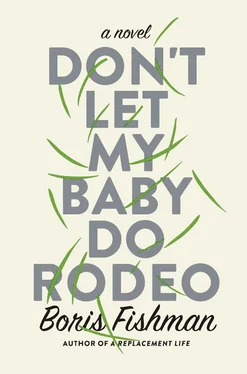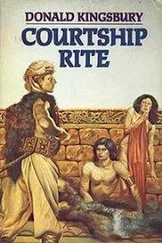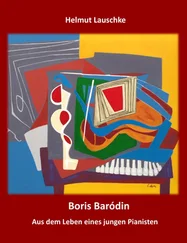As they made their stumbling way out of the fairgrounds, Max cried himself to sleep. The Escape warmed up rapidly. Alex blasted the heat downward at his feet and they climbed onto the patchy white county road that led to the front of the fairgrounds and would start them on the long road east. The snow was gusting more thickly. As they rolled out of Adelaide, Maya heading in Harry Sprague’s direction a fourth time — she would call him; no, fax him; ask him to become the boy’s godfather; ask him to invent for the boy stories of Laurel and Tim until she could track down their real selves; for now, Harry was as close to them as her child could come — Maya wondered if another three days in Adelaide was a small price to pay for not driving in hideous weather. But she had found her limit; she needed to go home. She would rest a little and then get started again. She would find them. For Max, she would find them.
Besides, those on the road want to keep moving. It is unnatural to turn back, even if behind you are homes with lights and heaters and food and before you a swirling white nothing.
It didn’t take long for the road to vacate itself of human intrusion. What population advantage this part of Montana enjoyed over the prairie had been erased by the weather. Maya consulted the map — she remembered more towns along the county road between Adelaide and the interstate, where surely they were plowing, but the road had settled into an immense emptiness. Trying to make the map agree with what she was seeing, Maya had gotten turned around and in a panic found herself unable to tell where exactly was Sheff City. She swiveled wildly in her seat — she needed to know where she was relative to it, and to him — and then had to clamp together her teeth to keep back her tears.
At the wheel, where the plodding snow, the blowing heater, and his heartbroken morning had fused into a warm mash, Alex was fighting to keep his eyes open. “Maya,” he whispered. The storm had suddenly turned feral, as if the level-straight lines separating the counties on the map could be for gradations of weather as well. The dun, bare peaks turned snow-streaked charcoal and the bruised-looking sky gleamed with vicious gray light. Maya flicked on the radio hoping for weather, but they were in a Christian zone, the talkers less concerned with the hazardous conditions of this world than the hazardless ones of the next.
“Bring on the fattened calf!”
“If you have been con tam inated—”
“Because God works through family radio—”
She turned it off and stared at the map with bewilderment she meant to conceal from the driver. She was grateful her son was asleep; she begged him to stay so. Briefly she thought about turning back but now they were almost as far away from Adelaide as to the interstate. If they continued down the county road, they would intersect with it in thirty miles. She looked over at Alex’s speedometer — he had slowed down to a crawl; it would take them an hour. Now she believed Marion; now the next hour would bring down a foot.
She stared at the map, willing it to yield some thin capillary of a north-south shortcut that could slice down to the interstate. The windshield was drowning in snow, the wipers scrambling wildly and not keeping up. The road ahead was the color of ash, the lane dividers long vanished. The fluffy pellets that had seemed so benign early that morning and even at the fairgrounds were descending with bureaucratic resolve.
They slid by a green rectangle: Interstate 90: 29 miles. How could one be so close to one of the busiest roads in the world and yet so helplessly enshrouded by blankness?
A half hour’s drive, now it would take them two hours. Alex was down to below twenty miles an hour, his shoulders up at his ears as he tried to make out the road through a small unfogged aperture in the windshield. There was so much snow pushing down now that two banks were building up on either side of the roadway. She remembered a country road driven as a child, willows rising from the sides of the road until they met above the roadway in a protective embrace. Now, she imagined the snowbanks multiplying until the three of them were sailing in a white tunnel, the sky as white as the walls of this borderless land that had suddenly turned airless and tight, and ran without end to the bluffs, the ridgelines, the buttes, the false beautiful names with which the people here marked the heartless world around them.
She found a capillary. She ran her hand across the map to make sure she wasn’t imagining. “Alex!” she shouted. Two miles east of them, a local road cut south to the interstate at a length of nine miles. That they could cover in a half hour; maybe the road was plowed, though probably not. Alex’s knuckles were white from clutching the steering wheel. His nose was pressed to its tip, squinting into the gloom. After a minute of silence, he said, “Help me look for it.” He was blinking furiously.
Something dull and stonelike was taking up room in Maya’s chest. She realized she was holding her breath. She tried the radio out of nervousness, but there was a sermon on, calm and unperturbed, already having accepted the death awaiting them all. They passed a placard of a prancing cow nailed to a split-rail fence — if there was a ranch somewhere here, she would knock on the door with no shyness. But where? Perhaps on the side road. Caps of snow neatly crowned every rail of the fence, an imponderable harmony.
The turnoff was well marked, visible even through the fog and smears of the windshield. Maya was cheered — logic dictated that a significant turnoff would not lead to an insignificant road. And at first, the side road — Alex asked twice that she verify on the map that they were doing the right thing — proceeded in a flat ribbon and felt more traversable than the county road. Perhaps it was in the lee of some ridge, and therefore got less snow. Maya tried to urge forward optimism.
Alex had nearly ceased trying to direct the vehicle, focusing instead on keeping the speedometer from falling too far. From somewhere beneath, the Escape squeaked. Car words sailed through Maya’s head — carburetor, chassis, axle, suspension. Beautiful words, connected to nothing. The once-black wave of the road flung them around, whitecaps lashing the hull.
They were 3.7 miles down the shortcut — Maya was counting by tenths of a mile, surreptitiously awaiting each shift of the odometer — when the Escape’s wheels refused to take a snowed-over incline. Maya shrieked as the car slid, Max flying awake. The car remained on the bank like a slug clutched to a wall — the snow was too heavy to climb over. Little by little, it had thickened as they proceeded down the road, as if the leeward protection had ended.
Through the windows, it looked as if darkness was starting in on the sky. No, it couldn’t be time yet for darkness. But the weather had cloaked the sky so thoroughly that it was all the same thing. Max began to weep softly. Maya called to her son and asked him to hold on; Mama and Papa would fix this, and then she would climb in the back. He would have to hold on for a little bit longer.
“Alex, we have to turn around,” she said.
“We just wasted a half hour on this,” he said.
“We’ll waste another getting back. But at least that road was flat.”
“I can’t turn around!” he yelled. “Look at what’s happening out there.” Max began to wail more loudly.
“Please don’t yell,” she said.
Alex cast her a hopeless look.
“Turn it off,” Maya said.
“Turn what off?” he said.
“The car.”
“Maya. .” he said. She sat next to a defeated man. She thought he would burst into tears.
She reached forward and flicked off the ignition. The engine died and the wipers collapsed in exhaustion. When the car was rumbling, more than half a tank of gas in its hold, the possibility that they would remove themselves from this bank was alive. Now, it was gone. It seemed odd to be still — a bad idea, surely, for the engine to grow cold. It seemed like they were giving up the pretense, like they were going to hunker down and hope they didn’t get buried, slide off into some ditch, end up some animal’s winter capture. They sat in silence. In twenty seconds, the windshield was covered.
Читать дальше












